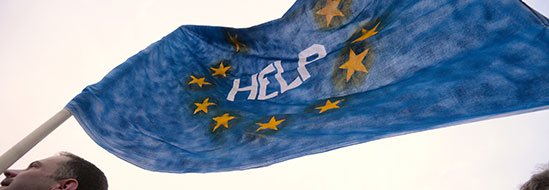The democratizing effectiveness of the process depends largely on the seriousness of the EU in requiring reforms. Press freedom was introduced as a prerequisite during negotiations with Croatia before its accession in July 2013, and it had an impact. “Press freedom was indeed an explicit requirement in the Croatian membership discussions,” Marc Pierini, Carnegie Europe scholar and former EU ambassador, told CPJ. “Therefore, the Croatians took the measures that were expected—mainly, changes in their legislation—because they knew it was the indispensable key to their acceptance in Brussels.” In other words, candidate countries should have no doubt that they will be rigorously monitored and that there will be no shortcut on the road to Brussels.
Preparing a candidate country for accession is challenging and complex. In a 2014 workshop on media reform in the Western Balkans, a DG NEAR official explained that EU initiatives, as delineated in the 2014 Guidelines for Support to Media Freedom and Media Integrity in Enlargement Countries, cover a wide spectrum: “media laws, market rules, transparency of ownership, criminal and civil codes, training of the judiciary.” They are far from being painless since they often happen “in the context of highly politicized and polarized nations where media professionals are deeply divided along ethnic or religious lines and powerful circles are resentful of Brussels impositions,” as a Serbian journalist put it at an EU Economic and Social Committee seminar in Brussels in April 2015. (Both were speaking under Chatham House rules, according to which a speaker’s identity cannot be published).
“Since the EU does not have good mechanisms of follow up once a country is inside, we have to be stricter during the pre-accession stage.”
– Turkey Rapporteur Kati Piri
“You cannot just clean the legal codes. You have to tackle journalism culture,” Guillaume Klossa, a director of the European Broadcasting Union, told CPJ. Ides Debruyne, director of Journalismfund.eu, who has been funding cross-border investigations on corruption and trafficking, particularly in the Balkans, added, “The EU priority should be investing in quality journalism more than in the media.”
Press freedom is seen not only as a value in itself and a barometer of the general state of affairs in a candidate country, but as an instrument to attain broader objectives, such as good governance and the rule of law. In 2015, for instance, DG NEAR and the Guardian Foundation, a charity linked to the British newspaper, announced a new award for investigative journalism in the Western Balkans and Turkey in recognition of the role that watchdogs and the independent press play in fighting corruption.
Press freedom and professional groups remain vigilant, though. They do not want to be seen as barring accession, because, as they told CPJ, independent journalists in the candidate countries see EU membership as an essential step to break from authoritarian and corrupt ways. The history of European integration, however, taught them that political or economic expediency may trump values.
